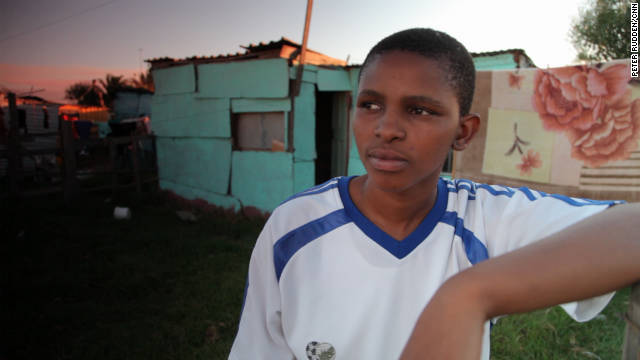By Tamara Alfred
Impunity Watch Reporter, Africa
As other African countries continue to fight over the potential criminality of being homosexual, South Africa, where gay marriage is completely legal, is dealing with the growing the trend of “corrective rape.”
“Corrective rape” is when a man forces himself on a homosexual woman believing it will end her lesbianism. The men who are perpetrating this violence believe that by raping a woman they can turn her into a “real African woman.”

The extent of the problem is hard to know since the South African police do not separate “corrective rape” statistics from other rape cases. Additionally, the government does not acknowledge that “corrective rape” is a major issue. Earlier this year, a Ministry of Justice spokesman told Time that the government “accept[s] that there is room for improvement, but that does not mean that the situation has gotten out of hand.”
Interpol estimates that half of South African women will be raped sometime during their life. The Daily Mail reported that ten women are currently assaulted by men every week.
Meanwhile, human rights groups in the country – where gay rights are constitutionally protected – are outraged. Activists want to see South Africa’s justice system take a stronger stance against “corrective rape,” and are pushing for legislators to make it a hate crime.
Cherith Sanger, of the Women’s Legal Centre in Cape Town, said, “We believe that corrective rape warrants greater recognition on the basis that there are multiple grounds of discrimination. It’s not just about a woman being raped in terms of violence against women, which is bad enough, but it’s also got to do with sexual orientation so it’s another ground or level of unfair discrimination leveled against lesbians.”
Human Rights Watch recently conducted interviews in six of South Africa’s provinces and concluded that “social attitudes towards homosexual, bisexual, and transgender people in South Africa have possibly hardened over the last two decades. The abuse they face on an everyday basis may be verbal, physical, or sexual – and may even result in murder.”
The South African director at Human Rights Watch, Siphokazi Mthathi, said, “Sexism is still deeply embedded here. There is still a strong sense among men that they have power over women, women’s bodies and there’s also a strong sense that there’s not going to be consequences because most often there are no consequences.”
In 2009, the UK’s Channel 4 broadcast a report by Samira Ahmed in which she asked a man, “what do you think of the men who say you have to rape a lesbian to fix her.” The man replied, “I think that is good because that is not good to be a lesbian. I think that is a good idea to do that to them.”
Ironically, South Africa is considered more tolerant on the continent where being gay is illegal in many other countries. The South African Constitution specifically forbids any discrimination based on the sexual orientation of its citizens. As a result, those entrusted with enforcing the country’s “tolerant laws” are now being accused of re-traumatizing victims.
One woman followed by CNN, 20-year-old Zukiswa Gaca, reported being attacked in December 2009. In the course of trying to find out information regarding her case, she eventually had to make a 30-minute drive from her home where she found the third assigned investigating officer to her case. He met with her in the wide, open office.
When Gaca asked why the police had not interviewed a friend of the alleged attacker who had witnessed the rape, another officer in the room told her, “I never take a statement from a suspect’s friend.” He continued that “[t]he only statements that are important here are the ones from your friend, a neutral person or a neighbor. Not someone who was there watching while you were being damaged and he wasn’t helping.”
Gaca continued to force the police to do their jobs every step of the way. She was the one who insisted the police re-arrest her alleged attacker after they let him go without taking DNA evidence. Gaca was also in the car when the police finally questioned the witness. He answered while leaning in through the car’s open window, while Gaca sat and watched.
The actions are possible violations of South Africa’s Victims’ Charter, drafted in 2004, which grants seven fundamental rights to every victim of crime. Included is the right to be treated with fairness and with respect to one’s dignity and privacy.
Now almost two years later, Gaca is still awaiting her day in court.
“They always get away with it. I’m just pushing so that there will be a different story on my case,” she said. “Maybe if this guy could be sentenced or something happens to him I think a lot of my friends will report their cases because some of the lesbians, they don’t report their cases, they don’t go to the police station because they know that it will just be a waste of time.”
For more information, please see:
Indian Express – S African lesbians becoming victims of barbaric ‘corrective rape’ – 31 October 2011
Digital Journal – ‘Corrective rape’ a growing trend in South Africa – 29 October 2011
CNN – Horror of South Africa’s ‘corrective rape’ – 28 October 2011